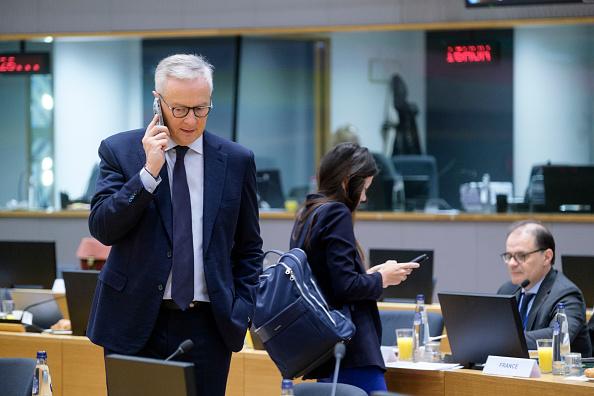In an embarrassing drafting mistake, the European Securities and Markets Authority – the European Union’s financial markets regulator – created an 18-month window starting in late April where investors could buy and sell unlimited amounts of shares in so-called “dark pools” – despite that being a business method it has specifically tried to limit for a decade.
Only when keen observers spotted the gaffe did the European Commission issue an emergency 11th-hour “interpretative notice” clarifying that previous regulations “remain applicable until the new ones enter into force” in late 2025.
Otherwise, the drafting error would have, for a year and a half starting in April, created an unregulated “Wild West” in dark-pool trading – with no rules – experts said.
Dark pools are a type of commercial activity, typically hosted by large banks such as US-based Goldman Sachs and Morgan Stanley, where investors can buy and sell shares without being “seen” to do so by other traders.
The new rules will now apply retrospectively “since March 28″, according to Hartmut Renz, a financial services regulatory advisor in Germany.
The gaffe illustrated one downside in a European Union attempt at financial regulation that runs to 30,000 pages.
While the dark-pool faux pas was amended in time, deeper flaws in the bloc’s efforts to revise its Markets in Financial Instruments Regulation (MiFIR) and Markets in Financial Instruments (MiFID II) rules seem to be proving harder to fix.
The first set of rules, issued in 2014, “had some theoretical logic but messed with a functional system and produced undesirable side effects,” Craig Coben, a former global head of equity capital markets at Bank of America, said on April 15.
A key part of the reforms was separating the fees companies receive in executing trades from how firms pay for the analyst research they offer clients, often for free – or “unbundling” the two, as the regulators put it.
This meant the EU upended the way the financial services sector pays for research – and inadvertently slashed the amount and quality of freely available information about companies and markets, according to Coben.
It took until last year for the bloc to start to change its mind about the situation.
Coben compared analyst research to a free toy included with a McDonald’s Happy Meal; the value of the toy is minute compared to that of the burger.
Such research costs came to just 0.01 to 0.03 per cent of total equity assets under management between 2013 and 2018.
The EU’s current effort at a row-back “is welcome but much of the damage may be irreversible”, Coben added.
Increased research costs have already led smaller financial services firms to merge with rivals, or amalgamate with bigger competitors, market observers have said.
Giulia Pecce, of trade body The Association for Financial Markets in Europe, said the EU’s “current level of regulatory complexity and arbitrary restrictions” are putting Europe’s financial sector “dangerously at risk”.
Sophia Fulugunya, formerly of regulatory technology firm Qomply, said a constant stream of changes introduced by EU regulators, such as a deceptively short March 27 announcement regarding an MiFID II/MiFIR review, forces firms to “undertake significant work in order to comply with the new rules”.
There is also a constant danger that EU regulators might decide to tear up the current 30,000 word-document and try again, in a “MiFID III or MiFID refit”, she added.
According to Bloomberg’s Fareed Sahloul, if you are a trader or a fund manager, “Mifid III” are “the scariest words you’ll read all week”.





